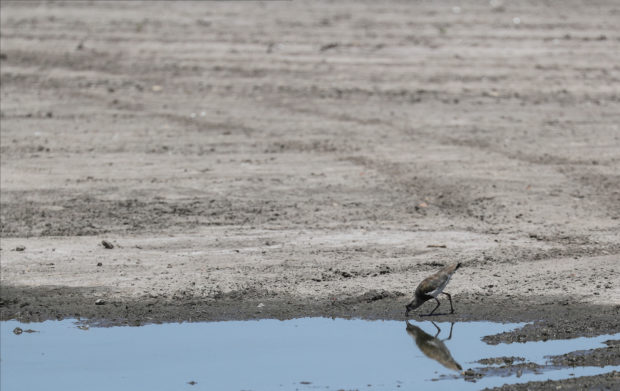
FILE PHOTO: A tero drinks water from a puddle in the Navarro lagoon, which dried up due to the climate phenomenon La Nina, in Navarro, in Buenos Aires province, Argentina December 5, 2022. REUTERS/Agustin Marcarian
BUENOS AIRES — Abundant rains will for the first time this cycle bring relief to Argentina’s parched farming heartland in the coming days, the Buenos Aires Grain Exchange said on Thursday, as a historic drought has prevented many farmers from planting their fields.
The lack of rainfall in Argentina, the world’s largest exporter of soybean oil and meal and the third-largest exporter of corn, is slowing the planting of the current soybean crop and has slashed forecasts for the country’s wheat harvest.
Agricultural production in Argentina is being closely watched after Russia’s invasion of Ukraine, key breadbasket nations, prompted a shortage of grains globally.
“The passage of a storm front will produce rain across most of the agricultural area, bringing effective relief for the first time this season,” the exchange said in its weekly weather report, forecasting between 50 and 75 millimeters in rainfall.
It added that the rains would allow farmers to finish sowing 200,000 hectares of soybeans in the fertile Pampas plains.
Farmers have so far planted 60.6% of a planned 16.7 million hectares, putting them 12.6 percentage points behind their progress this time last year due to the dry soil, it said.
Corn planting for the 2022/23 cycle has meanwhile fallen 8.4 percentage points behind last year’s level, with 51.8% of an estimated 7.3 million hectares sown.
The country’s estimated 12.4 million tonne wheat harvest is meanwhile 78.3% complete, it added. Badly hit by the drought, this season’s harvest is forecast to be just over half the 22.4 million tonnes produced in 2021/22.
Argentina is a key world supplier of wheat, which it ships mainly to Brazil and Indonesia.